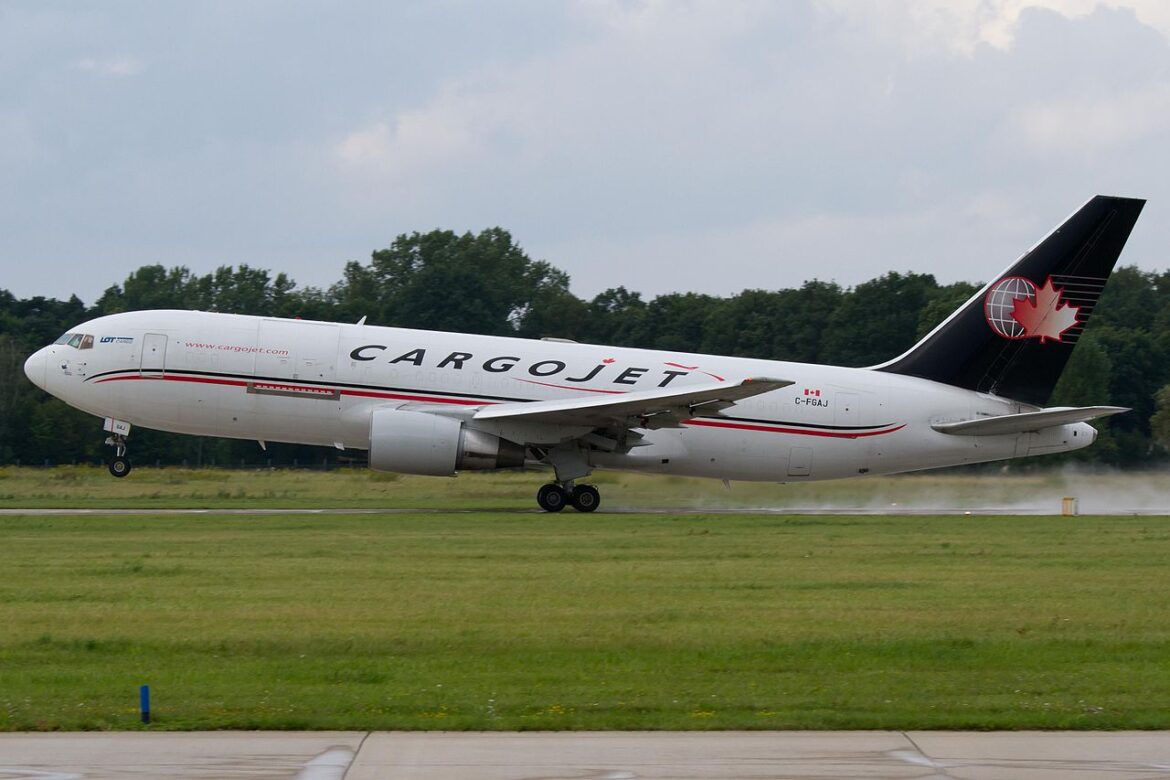Cargojet has affirmed its focus on growing 767 freighter operations with the acquisition of two more passenger aircraft for future conversion.
The Canadian cargo airline confirmed it had two 767s currently undergoing conversion, but said it had also invested in two more of the type.
“Cargojet currently has two B767 passenger-to-freighter conversions in process,” said the airline in its management discussion document for the second quarter of this year.
“The expected completion date for the first conversion is expected in the first quarter of 2025. The second conversion is anticipated to be completed mid 2025.
“Cargojet has invested in two additional B767 feedstock to ensure that the Company has sufficient inventory of feedstock on hand to capture any future growth opportunities.”
The airline also indicated it is looking to retain its Boeing 757 freighters due to increased utilisation.
In June, Cargojet announced it had begun an e-commerce focused scheduled charter service between Hangzhou and Vancouver for logistics firm Great Vision HK Express using Boeing 767-300 freighters.
“As a result of continued strong demand, we have reengineered our schedules to free up 767-300 aircraft to support our China charter programme, without any capital expense requirements, and increased the utilisation of our 757 fleet. This results in us no longer having a surplus of 757 aircraft,” said the airline.
Cargojet recorded a 10.1% year on year rise in revenue for the second quarter ended June 30, with strong growth in domestic, ACMI and charter business.
Total revenue for the quarter was C$230.8m compared to second quarter 2023 revenue of C$209.7m. Domestic network, ACMI and charter revenues were C$191.3m, up 11.5%.
Adjusted EBITDA (earnings before interest, taxes, depreciation, and amortisation) for the quarter was $79.1m, up 6.5%.
“Cargojet continues to identify and execute on opportunities in the fast-changing global supply chains,” said Jamie Porteous, co-chief executive. “Our earlier announcement, launching a Charter service for fast growing China based e-commerce brands is an example of our deep understanding of new and emerging air cargo routes”. “
“While geo-political challenges and broader economic headwinds continue to affect the overall transportation industry, we remain focused on continuing to grow our Domestic, ACMI and All-in Charter revenue.”
Pauline Dhillon, co-chief executive, added: “A continued focus on controlling costs and maintaining EBITDA margins has resulted in another very solid quarter. We continue to be industry leaders in terms of On-time Performance, flexibility, responsiveness, and adding value to our customers.”
At the start of the year, Cargojet announced it would exit plans to operate Boeing 777 freighters in a bid to safeguard its business against continuing soft air cargo demand.
The freighter operator decided it would no longer convert four Boeing 777-200s into freighters. This decision, announced in a January 15 fleet update, is a step away from its original plans to convert eight 777s (four -200s and four -300s).
Cargojet instead said it would focus on its 767F aircraft, but has retained the rights for future 777 conversions.
As of June 20, the airline had a total of 41 aircraft including 21 767-300Fs, three 767-200Fs and 17 757-200Fs.
Source: Cargojet
Cargojet profits improve in Q1
Cargojet scoops China-Canada e-commerce freighter deal
The post Cargojet invests in more 767s as Q2 revenue climbs 10% appeared first on Air Cargo News.



